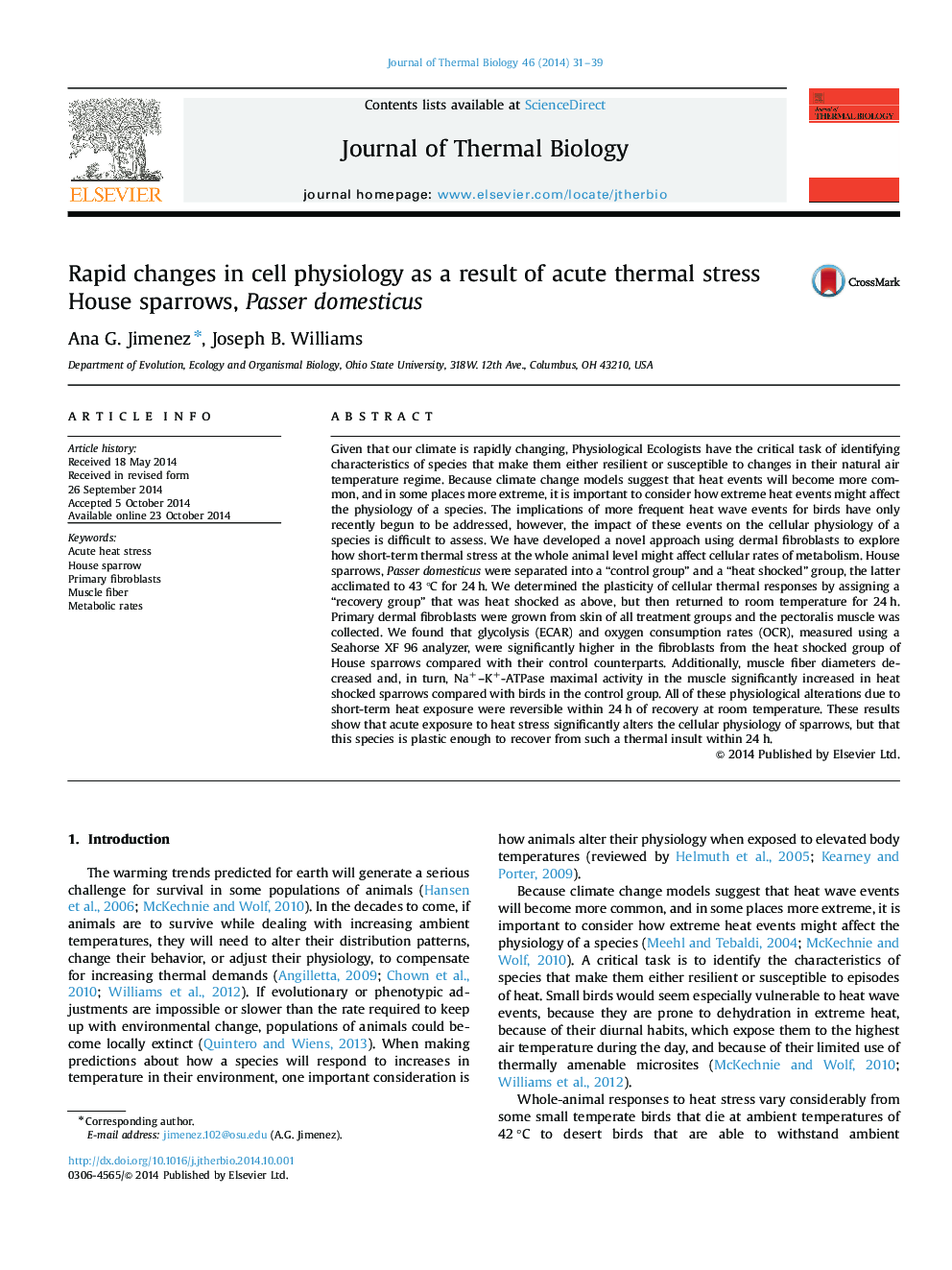| کد مقاله | کد نشریه | سال انتشار | مقاله انگلیسی | نسخه تمام متن |
|---|---|---|---|---|
| 2842863 | 1571099 | 2014 | 9 صفحه PDF | دانلود رایگان |

• Climate change models suggest that heat events will become more common, and extreme, it is important to consider how extreme heat events might affect the physiology of species. We have explored whether short-term thermal stress at the whole animal level might alter cellular rates of metabolism.
• We found that glycolysis (ECAR) and oxygen consumption rates (OCR), measured using a Seahorse XF 96 analyzer, were significantly higher in the heat shocked group of House sparrows compared with their control counterparts.
• Muscle fiber diameters decreased and, in turn, Na++-ATPase maximal activity in the muscle significantly increased in heat shocked sparrows compared with birds in the control group. All of these physiological alterations due to short-term heat exposure were reversible within 24 h of recovery at room temperature.
Given that our climate is rapidly changing, Physiological Ecologists have the critical task of identifying characteristics of species that make them either resilient or susceptible to changes in their natural air temperature regime. Because climate change models suggest that heat events will become more common, and in some places more extreme, it is important to consider how extreme heat events might affect the physiology of a species. The implications of more frequent heat wave events for birds have only recently begun to be addressed, however, the impact of these events on the cellular physiology of a species is difficult to assess. We have developed a novel approach using dermal fibroblasts to explore how short-term thermal stress at the whole animal level might affect cellular rates of metabolism. House sparrows, Passer domesticus were separated into a “control group” and a “heat shocked” group, the latter acclimated to 43 °C for 24 h. We determined the plasticity of cellular thermal responses by assigning a “recovery group” that was heat shocked as above, but then returned to room temperature for 24 h. Primary dermal fibroblasts were grown from skin of all treatment groups and the pectoralis muscle was collected. We found that glycolysis (ECAR) and oxygen consumption rates (OCR), measured using a Seahorse XF 96 analyzer, were significantly higher in the fibroblasts from the heat shocked group of House sparrows compared with their control counterparts. Additionally, muscle fiber diameters decreased and, in turn, Na+–K+-ATPase maximal activity in the muscle significantly increased in heat shocked sparrows compared with birds in the control group. All of these physiological alterations due to short-term heat exposure were reversible within 24 h of recovery at room temperature. These results show that acute exposure to heat stress significantly alters the cellular physiology of sparrows, but that this species is plastic enough to recover from such a thermal insult within 24 h.
Journal: Journal of Thermal Biology - Volume 46, December 2014, Pages 31–39